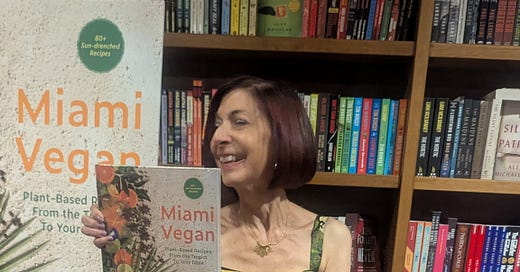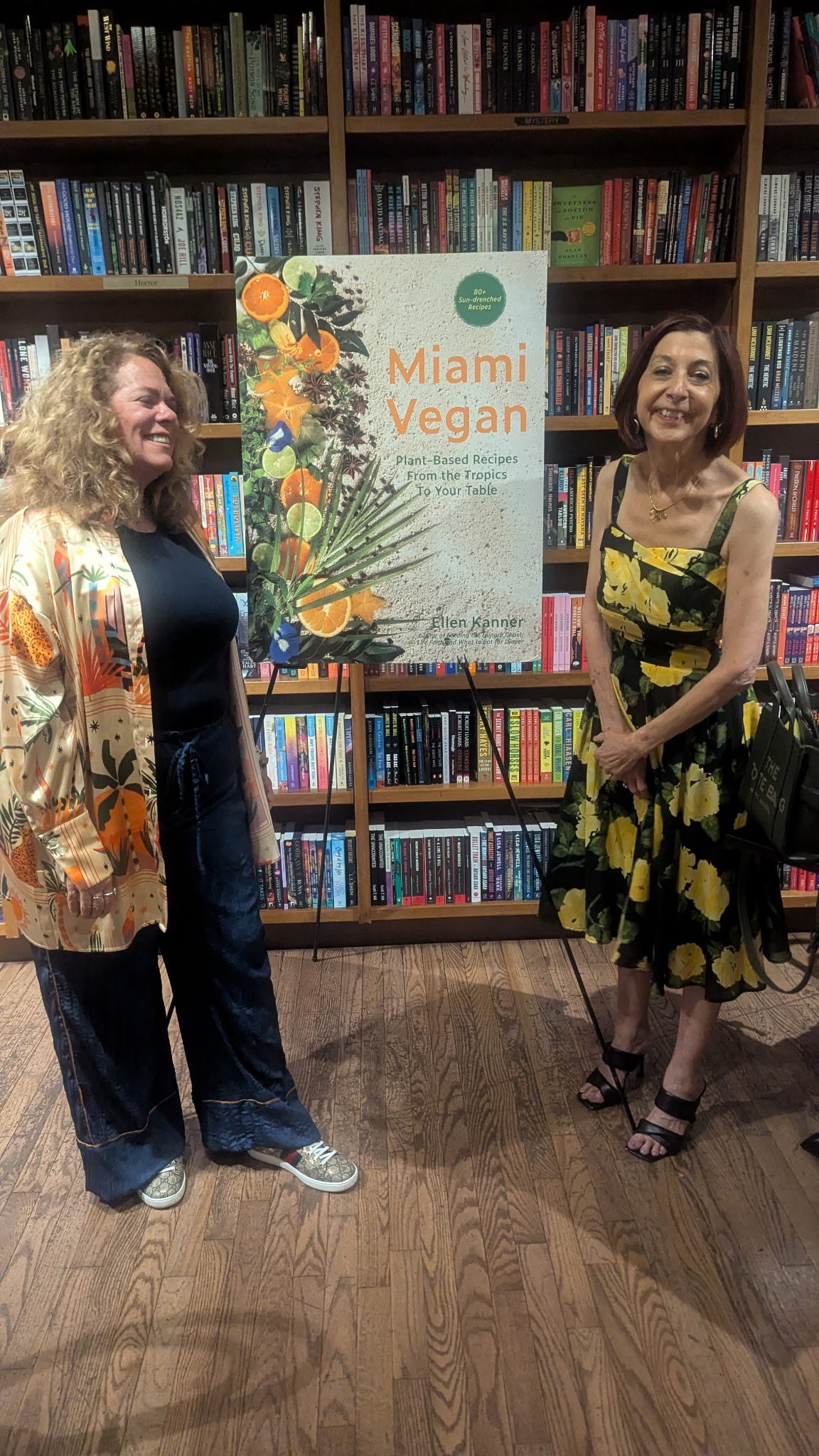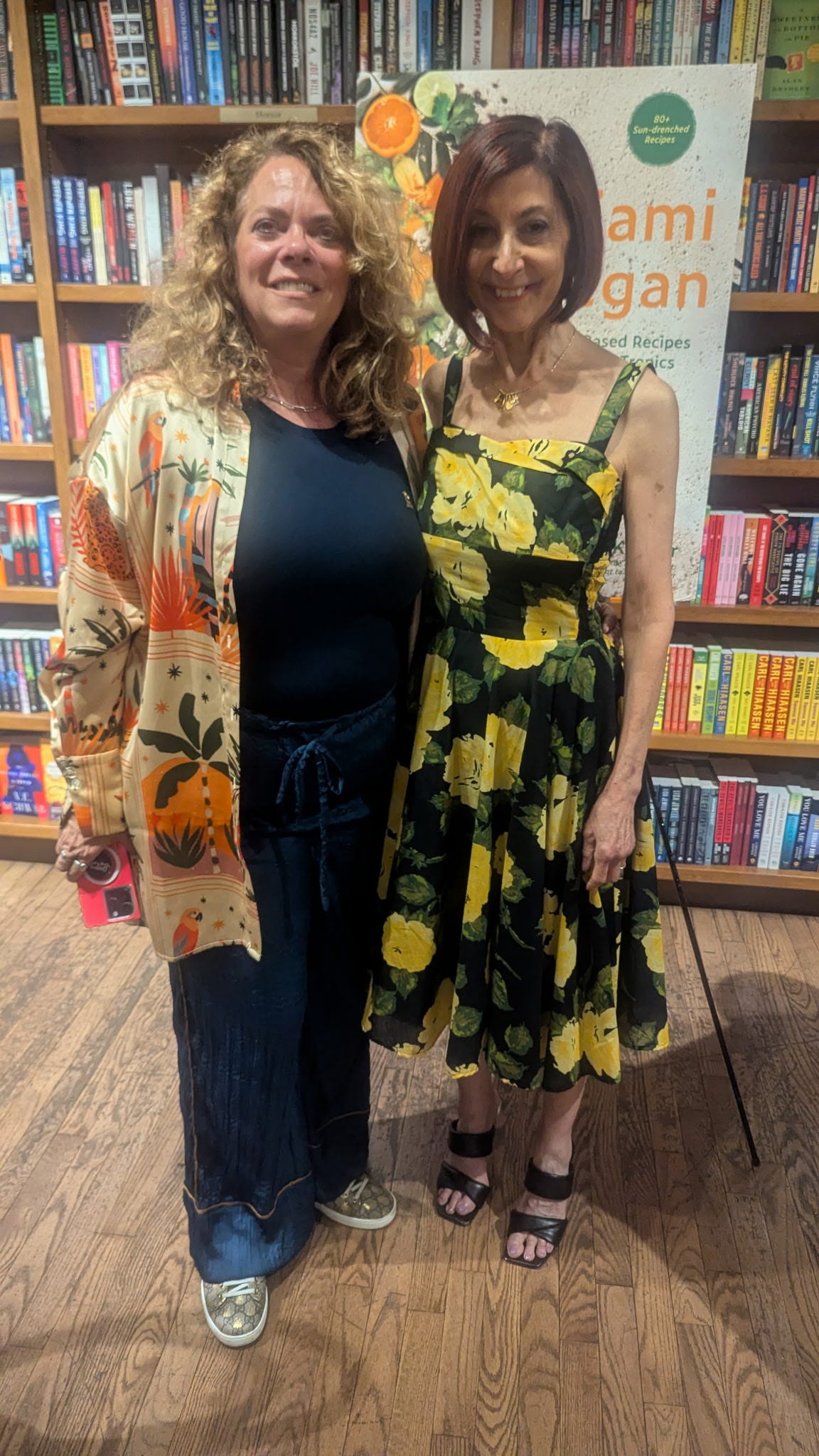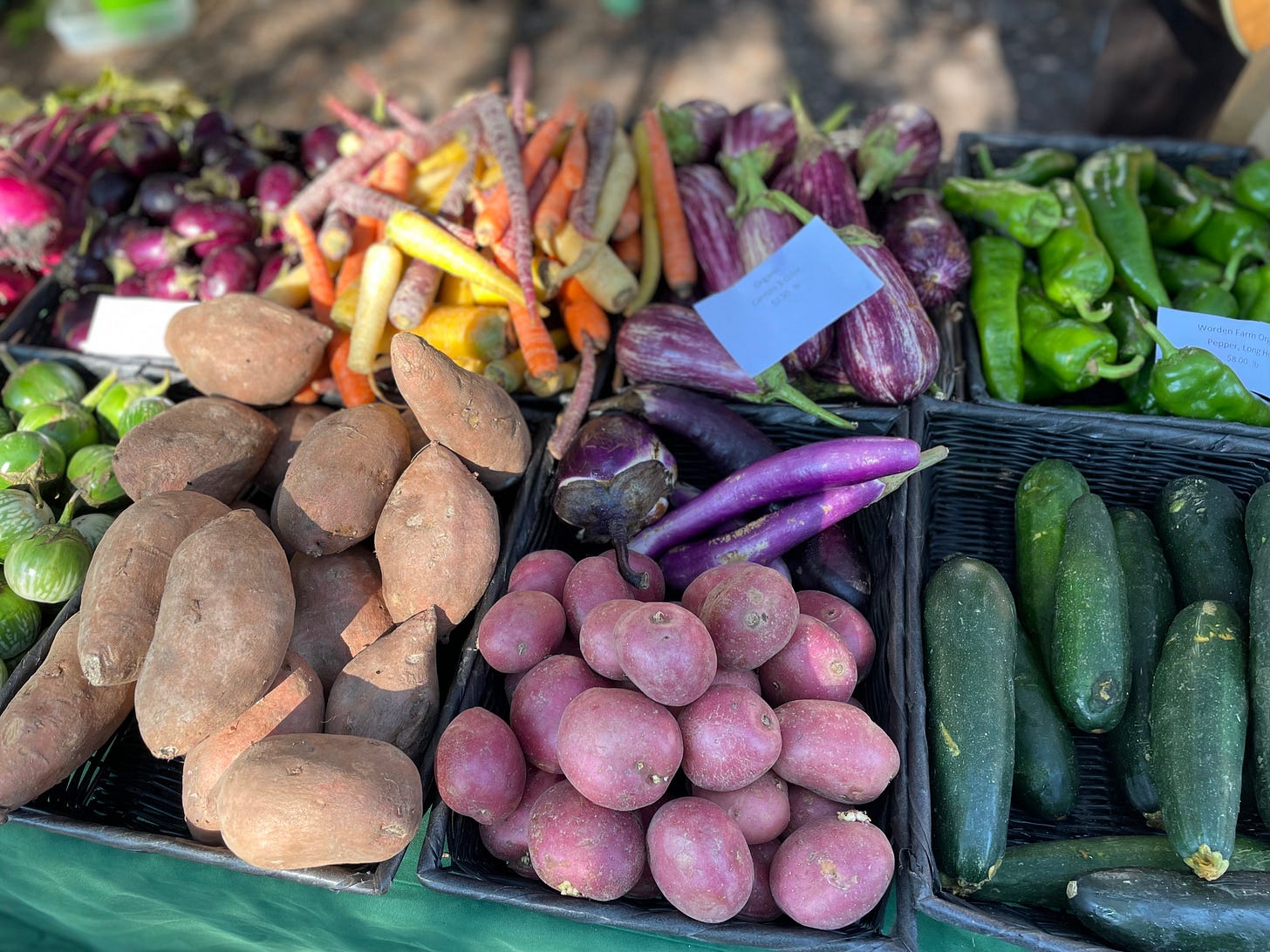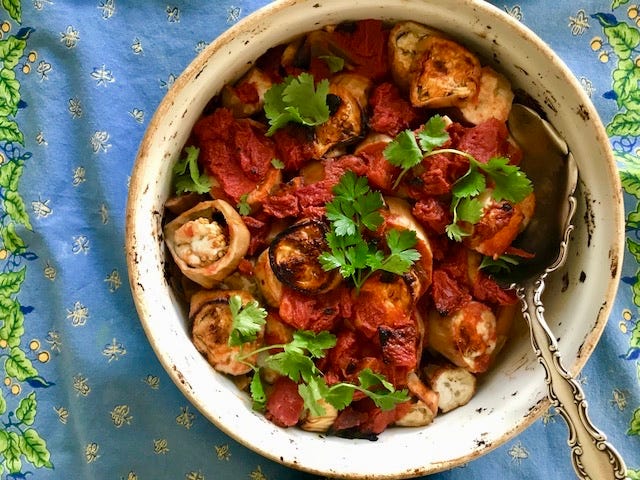Broccoli Rising, Miami Vegan, and Yoshimi Battles the Pink Robots, Pt 1
Two things happened last week:
My new cookbook Miami Vegan: Plant-Based Recipes from the Tropics to Your Table came out. Get your fresh copy!
My website soulfulvegan.com crashed when it got hacked by bots.
Coincidence? Who knows? Not even my brilliant, valiant, and usually unflappable IT guy. Even he had to admit this was a diabolically effective system mess-up. Oh, why can’t people use their talents for good instead of evil? But he patiently unknotted the bot-created glitches, banished the wicked invaders, and restored my website and my faith. Score one for humanity.
This is the thing about humans. We’re like Pandora, who in Greek mythology was created by the gods as the first human. She was a test case. Millennia later, despite the trappings of modernity, we haven’t progressed terribly far. We can create things like bots and UPFs with our wildly imaginative brains, but then let them loose in the world without understanding or caring about the consequences. We get things wrong. We have the power to unleash all Pandora’s evils, but we also have the ability to create workarounds and fixes (although I’d like humankind to step up the process). That makes us better than AI and bots.
AI can’t hug you, or maybe it can, but I don’t want it hugging me. I don’t cook with or for anything artificial. Vedge chef Rich Landau is with me on this. So’s Luciana Giangrande of Miami’s tiny Michelin-starred Boia De and Daniel Putzhammer, Food and Beverage senior director of Seabourn Cruises. Whether they offer intimate dining or dining on a grand scale, they’re not interested in AI-generated recipes or having bots in the kitchen. They — and I — want to offer more than what’s on the menu — true hospitality, a level of care that’s anything but artificial. For all our human craziness, arrogance, stupidity, and general mess, there’s something about healing human touch, human intelligence, human emotion, and human empathy AI can’t replicate, no government can abolish. It’s how we’re made.
A great gushing thank you to all the humans who’ve been cheering on Miami Vegan:
Mitchell Kaplan, Cristina Nosti and the whole Books and Books team for hosting my book launch.
Fab food journalist and all-around fun person @LaineDoss, my evening’s interlocutor (great word, no?). We should take our act on the road.
Longtime BFFs and new friends who came out to make my book launch at Books and Books a truly Cinderella evening.
Favorite folk like @MattHaig, @botanicalchef, @ediblesouthflorida, @miyokoschinner and @mayukhsen, who all graciously contributed big-hearted book blurbs for Miami Vegan.
Awesome outlets, including incredible Edible South Florida who featured me in its new issue — yee-hah!
Podcast hosts like Dean Jones of The Well-Seasoned Librarian and Tip of the Tongue’s Liz Williams
Coming up soon — podcast episodes with Kitchen Confidante’s lovely Liren Baker my soul-to-soul chat with Main Street Vegan’s yogini-in-chief Victoria Moran and plantbased hero and Plantstrong podcast host Rip Esselstyn.
You guys make a girl proud to be human.
I’ll just keep thanking everyone for the next few Broccoli Risings, because I’m so grateful, and people deserve credit. Deal with it.
Extra points if you recognize the Flaming Lips reference in today’s Broccoli Rising title. No crime if you don’t. “Yoshimi Battles the Pink Robots, Pt. 1” is an old, obscure song but a goodie. Have a listen. And don’t let those evil robots defeat us.
Broccoli Rising is a reader-supported publication. Next Monday’s Broccoli Rising is a paid subscriber exclusive. Don’t you want to be in on it? Sure you do. Become paid subscriber now.
One Vegetable Casserole To Rule Them All
It’s called briam in Greece, unless, according to Greek cookbook author Diane Kochilas, it’s called soufico. A Catalonian version is called escalivada. It’s known as guvec in Turkey and gyuvech in Romania.
By any name and wherever it’s served, it’s a slow-roasted seasonal vegetable delight, calling only for fresh vegetables, olive oil, sea salt, heat and time. Like its French relative, ratatouille, it features eggplant and tomato, but it’s otherwise a flexible use-what-vegetables-you-have dish. Simple to make but transformative to eat, it’s a full-throated expression of vegetable essence. It keeps well too, and is proof humans can use our imaginative powers for good.
It's No Myth Seasonal Summer Briam
To honor Jason and the Argonauts and seasonal eats, here’s a briam — a Greek casserole of summer veggies. Many traditional recipes are oil guzzlers (fancy that). This has less oil but loads of flavor from the vegetables themselves, and the produce and time does the work for you. Crusty on top, juicy on the bottom, it’s good over brown rice, quinoa or with crusty bread for soaking up sauce. Serve with a Greek — or any — salad.
1 15-ounce can diced tomatoes
1 tablespoon tomato paste
2 tablespoons olive oil plus divided use
4 cloves garlic chopped
1 lemon
1 pinch of cinnamon
1 potato sliced
1 onion sliced
1 red pepper sliced
1 zucchini sliced
1 eggplant sliced
sea salt and pepper to taste
1 handful fresh chopped parsley
1 handful fresh chopped oregano
Preheat oven to 425.
In a small bowl, mix together diced tomatoes, tomato paste, 1 tablespoon of olive oil, chopped garlic, pinch of cinnamon and the juice of 1 lemon.
In a deep casserole or pie pan, arrange potato slices in a single layer. Spoon roughly 1/3 cup of the tomato sauce on top. It will not cover the potato slices entirely. Don’t worry.
Top with sliced onion. Repeat with 1/3 cup sauce.
Continue layering with sliced red pepper and sauce, zucchini and sauce and eggplant, topping with remaining sauce.
Drizzle with the remaining tablespoon of olive oil, season with sea salt and pepper and bake for 30 minutes.
Top with chopped parsley and oregano.
Good hot or room temperature. Keeps covered and refrigerated for days.

